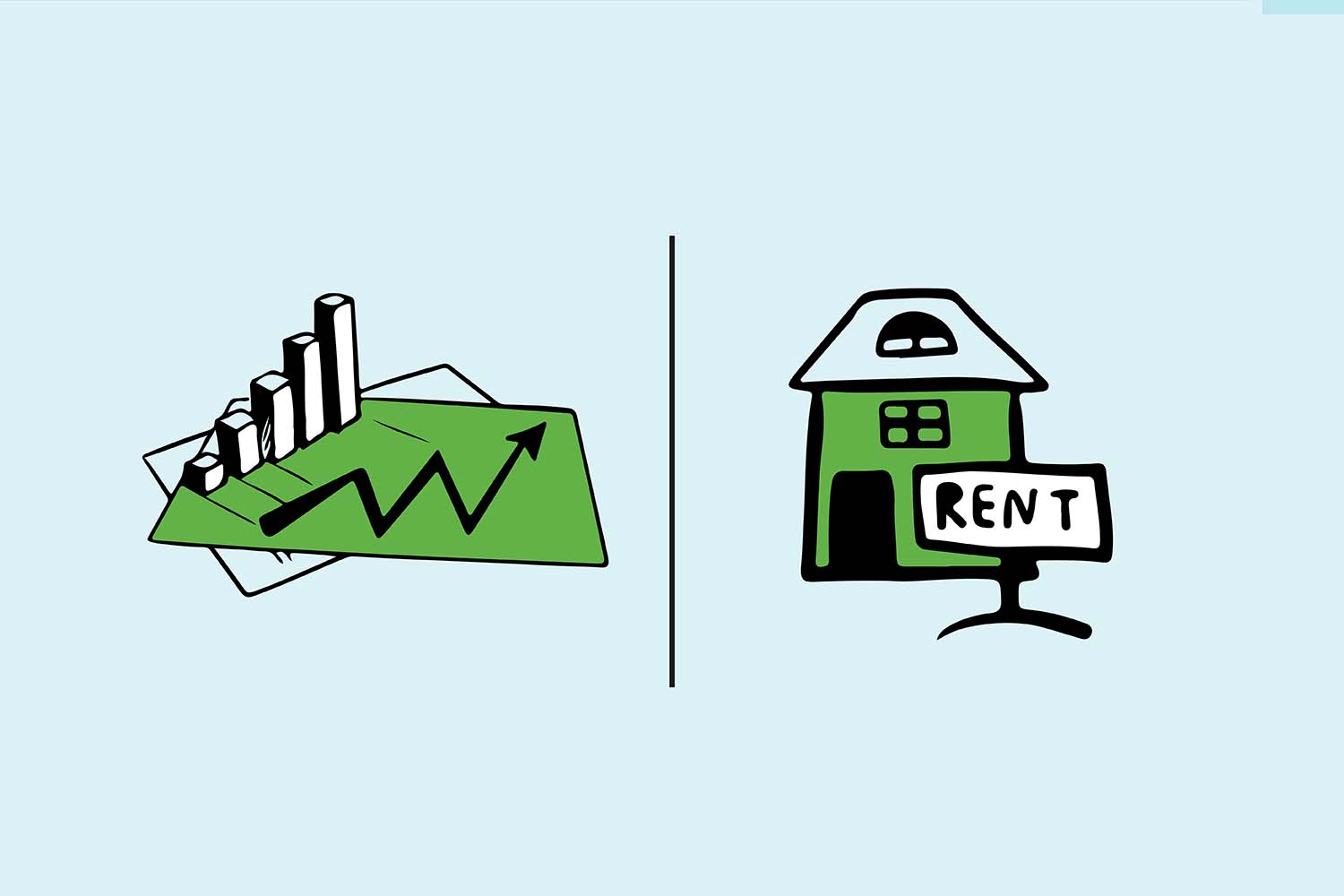If there is one lesson we can all learn from recent happenings in the global economy, it is the need to consistently grow our sources of income from stable asset classes.
One of the ways of growing your sources of income is by earning from your investing activities. Real estate is one asset that generates regular income. Investors that own real estate properties earn rental income on a regular basis and earn capital growth when there is an increase in the value of the real estate property. While rental yields might be low compared to investment options in the capital markets, the consistent rental income from real estate investing provides cashflow.
There are different ways to invest and earn cash flow from real estate, we’ll highlight some of them here.
Rental Properties
One of the most popular ways investors earn from real estate is through rental income from rental properties. Investors who wish to earn cashflow invest in residential or commercial properties with the sole aim to renting them out for income. This source of income can serve as a source of regular income and a hedge against inflation as rental income rises with inflation. In addition to the traditional annual tenancy options, investors can also consider options to make their properties available on platforms like Airbnb, bookings.com and other short-let options. While these options might be more viable than traditional rentals because they give investors the opportunity to earn from multiple tenants within a short period of time., they also come with risks and operational requirements. As an investor, you should be aware of this and make your decisions with full information, carefully considering all the options.
House Flipping
House flipping happens when an investor buys houses below the market price, refurbish and sell the houses at a price higher than the purchase price due to the additional value added to the property. House flipping is trend in more developed real estate markets in the UK and USA. In Nigeria, a different approach is typically implemented where investors buy houses at the off-plan stage (i.e., when the property is still under construction). Prices are cheaper at off-plan, and when they rise when the real estate project is completed, the investors sell at a margin.
Like investing in rental properties, the turnaround time between when houses are bought for flipping and resold may not be as short as expected. Investing in real estate via house flipping also requires that you have a good grasp of how the market works in terms of current demand, market timing, a good grasp of numbers i.e., will you make a significant profit after you invest in refurbishing the house for re-sale? These are important considerations to consider when house flipping
Crowdfunding Platforms
Technological innovation has made it possible for investors to earn from different assets by investing on crowdfunding platforms. Real estate crowdfunding platforms allow investors to co-invest in real estate and earn rental income without being actively involved in the management of the properties. These platforms allow investors invest based on their goals and investment strategy. Most of these platforms are however open only to accredited investors.
Investors need to be aware of the risk of investing in real estate via crowdfunding platforms. It is important to independently verify the legitimacy of crowdfunding platform and the real estate properties being invested in before investing on any platform. There is also the risk of illiquidity as investors may not be able to exit their investment at any time. Some platforms require investors to hold their investment for at least 5 years.
Real Estate Investment Trusts (REITs)
REITs are a portfolio of real estate properties managed by a real estate development company. With REITs, Investors buy units of the jointly managed fund and earn dividend from the investment when the fund is profitable. REITs can be publicly listed or privately managed. Publicly listed REITs, trade daily on stock exchanges and pay all their profits as dividend to investors.
REITs are ideal for investors who are seeking exposure to real estate and do not want to be actively involved in the day-to-day management. Unlike crowdfunding platforms, most REITs are liquid as they trade daily on stock exchanges subject to demand.
Real Estate Funds
Real Estate Funds are also a viable way of investing in real estate. While a real estate investment trust (REIT) is a corporation that invests in income-producing real estate opportunities and the units are bought and sold like a stock, a real estate fund is a type of mutual fund that invests in securities offered by public real estate companies, including REITs.
REITs pay out regular annual dividends, while real estate funds provide value through appreciation in the value of the securities invested in. Diversified real estate funds (i.e., funds with investment in properties in different parts of the world) are ideal for investors in developing countries as they provide a hedge against devaluation. Examples of real estate funds are mutual funds that invest in real estate development companies. These funds are managed by fund managers who have established expertise in the real estate market.
To successfully invest in real estate, investors need to note the following
Be financially prepared
Real estate is a high-ticket asset. iI is important investors are prepared financially to take advantage of the opportunities in the market. Developed economies have a mortgage system that allows investors make a down payment and complete payment for real estate properties over long periods of 15-30 years. Real estate investing in developing economies is not structured in the same way as it is in developed countries. Investors either pay outrightly or pay in installments over 12 - 24 months to real estate developers.
Investors who may not be able to afford to buy outrightly or invest through a mortgage can consider investing in REITs or real estate funds. These are less expensive and easier means of investing in real estate. Investors can also come together with friends and family or join a community of investors to co-invest in real estate properties. It is however important that the modalities for co-investing are properly ironed out before putting funds together to purchase real estate properties.
Know the market
Do not invest in assets you do not understand, and this applies as well to real estate. To successfully invest in real estate, it is important to understand how the real estate market in the area/state/country works. In the US for example, different states have different guidelines for real estate investment. Some states have rules that ban short-let apartments while others welcome them. Don’t make the mistake of investing in real estate for rental income and find out later the property cannot be used as a rental property.
Knowing this will guide you in your investment decisions and help you make the most of your investment in real estate. This also applies to REITs and real funds; it is important that investors carry out the necessary research and ask the right questions before investing in any of these real estate investment options.
Clearly define your goals
Once your investment objective is defined clearly, you’ll know what real estate investment options work and which ones do not. If you’re looking to invest in real estate to earn an additional source of income, your outlook will be different from someone who wants to own a home. If you’re looking to hedge against inflation and currency devaluation, that should guide the location/country you choose to invest in real estate. All in all, your goals should define and guide how you’ll invest.
Real estate is one of the few assets that moves in tandem with inflation, this makes it an ideal asset for every investor. However, it is important that you understand the risk and reward of all real estate investment option, know how it fits into your financial goals and make a firm decision based on this.




